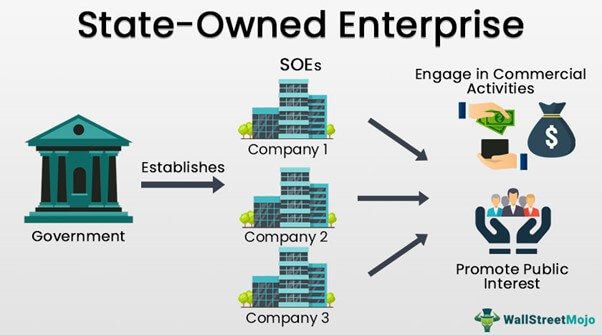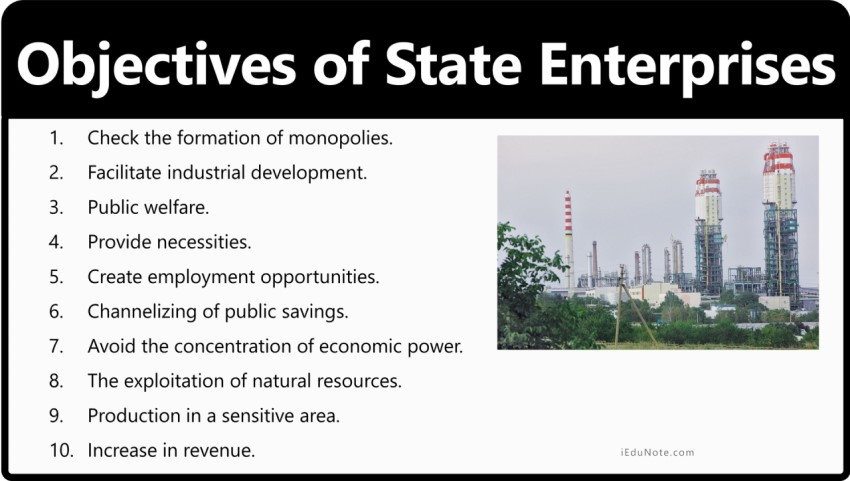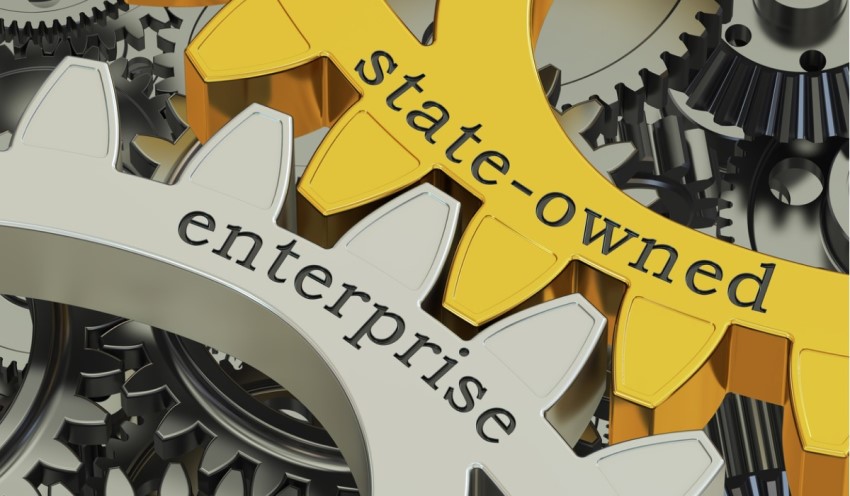Anyone with a background in business knows that there are many business models that business owners can choose from today. Each model has certain characteristics, bringing its own opportunities and challenges that businesses face. Among them is a State-owned enterprise. So what is a State-owned enterprise and how does it work? Find out in today’s article.
What is a State-Owned Enterprise?
A state-owned enterprise (SOE) is a legal entity established by the government to engage in commercial activities on behalf of the government. The government may own all or part of a state-owned enterprise, which is usually allowed to engage in specific activities. SEO often promotes economic growth while maintaining the common good. They are instrumental in modernizing the country and are often established in areas such as infrastructure, strategic goods and services, banking, healthcare, and more. The United States Postal Service (USPS), Fannie Mae, and Freddie Mac are common examples of state-owned businesses in the United States.

How does a State-Owned Enterprise Work?
SOEs can be found in many countries and can operate in a variety of industries, such as energy, transportation, telecommunications, and natural resources. The specific operations of an SOE will depend on the industry in which it operates and the laws and regulations that apply to it. Generally, an SOE is established by the government in order to pursue a specific policy objective, such as providing a public service, promoting economic development, or advancing a particular social or political agenda. SOEs may be required to adhere to certain performance standards and may be subject to special regulations or oversight.
SOEs can be run in a variety of ways, depending on the country and the specific industry. Some SOEs may be run as traditional for-profit companies, while others may be required to prioritize social or environmental goals over maximizing profits.
State-owned enterprise characteristics
There are several characteristics that are commonly associated with state-owned enterprises (SOEs):
- Capital from state sources: State-owned enterprises are funded by the government. All or most of the investment is made by the government.
- Service goal: The primary goal of state-owned enterprises is not to make profits, but to provide services to society. it is different from a private entrepreneur who will only set up a business if there is a possibility of making a profit.
- Sole Proprietorship: In most cases, these businesses are sole proprietorships and other private businesses are not allowed to participate. Railways, production and distribution, coal mining, etc. are all sole proprietorships.
- Autonomous or semi-autonomous agency: State-owned enterprises are autonomous or semi-autonomous agencies. In some cases they work under the control of government agencies and in other cases they are incorporated in an official capacity and under the Companies Act.
- Governance: The management of an SOE is usually appointed by the government and the company may be required to report to a government agency or department.
- Dividends: In some cases, an SOE may have to pay dividends to the government, although this is not always the case.
- Competition: SOEs may face competition from both private and corporate firms, depending on the industry in which they operate.
Objectives of State-owned Enterprises

The objectives of state-owned enterprises (SOEs) can vary depending on the country and the specific industry in which the SOE operates. However, some common objectives of SOEs include:
- Providing a public service: SOEs may be established in order to provide a service that is considered to be in the public interest, such as water, electricity, or transportation to people at a cheaper rate.
- Promoting economic development: SOEs may be established in order to stimulate economic development in a particular region or industry.
- Advancing social or political agendas: SOEs may be established in order to pursue specific social or political goals, such as promoting equality or protecting the environment.
- Generating revenue for the government: In some cases, an SOE may be required to pay dividends to the government or to contribute to the government’s budget in other ways.
- Improving efficiency: SOEs may be established in order to improve the efficiency of a particular industry or sector, such as by modernizing infrastructure or introducing new technologies.
- Offsetting market failures: SOEs may be established in order to address market failures, such as a lack of competition or the externalization of costs.
The Advantages of State-owned Enterprises
Forming and developing basic and key industries
State-owned enterprises are essential for key and basic industries such as water, electricity, and transportation industry… These basic and key industries are meant for the welfare of the people.
Meaningful for economic growth
The establishment of some enterprises requires large investments that are not possible for private industrialists. In cases related to shipbuilding, railway, and energy production, huge investment is required and private investors cannot get into these areas. In such a situation, the government gets involved in these areas and establishes its own commitments to the economic growth of the country.
Optimal use of natural resources
State-owned enterprises have the role of using natural resources in the most beneficial way for the country. Optimal use of natural resources leads to better and cheaper production.
Eliminate wasteful competition
SOEs are often large in size and can therefore take advantage of economies of scale. In order to provide goods and services at a reasonable price, state-owned enterprises must necessarily grant monopoly rights to enterprises to avoid the wasteful competition often seen in private enterprises.
Establish the socialist model socialism
In the socialist model, the gap between rich and poor is reduced and the means of production are controlled by the state. The establishment of a strong public sector is essential for an equal distribution of wealth.
Social and political goals
SOEs can be used to promote specific political or social goals, such as promoting equality or protecting the environment.
Ensuring accessibility
SOEs can help ensure that certain goods or services are available to everyone, regardless of their ability to pay.

The Disadvantages of State-owned Enterprises
Excessive Government Intervention
In SOEs, there is excessive government intervention and they are not free to decide their policies.
Poor profit
State enterprises must protect the interests of consumers. They have to spend more but in return, they get less. SOEs may be less efficient than private firms, as they may not be subject to the same market pressures to cut costs and improve productivity.
Lack of innovation
SOEs may be less innovative than private companies, as they may not have the same incentives to develop new products or services.
Corruption
SOEs may be more prone to corruption, as they may not have the same checks and balances as private companies.
Limited competition
SOEs may limit competition in an industry, as they may not face the same level of competition as private companies.
Conclusion
Above is some information you need to know about state-owned enterprises if you are looking to learn more about this field. State-owned enterprises bring certain advantages and disadvantages as well as different goals and roles compared to conventional enterprise models. If you have any questions, leave us a comment below!

